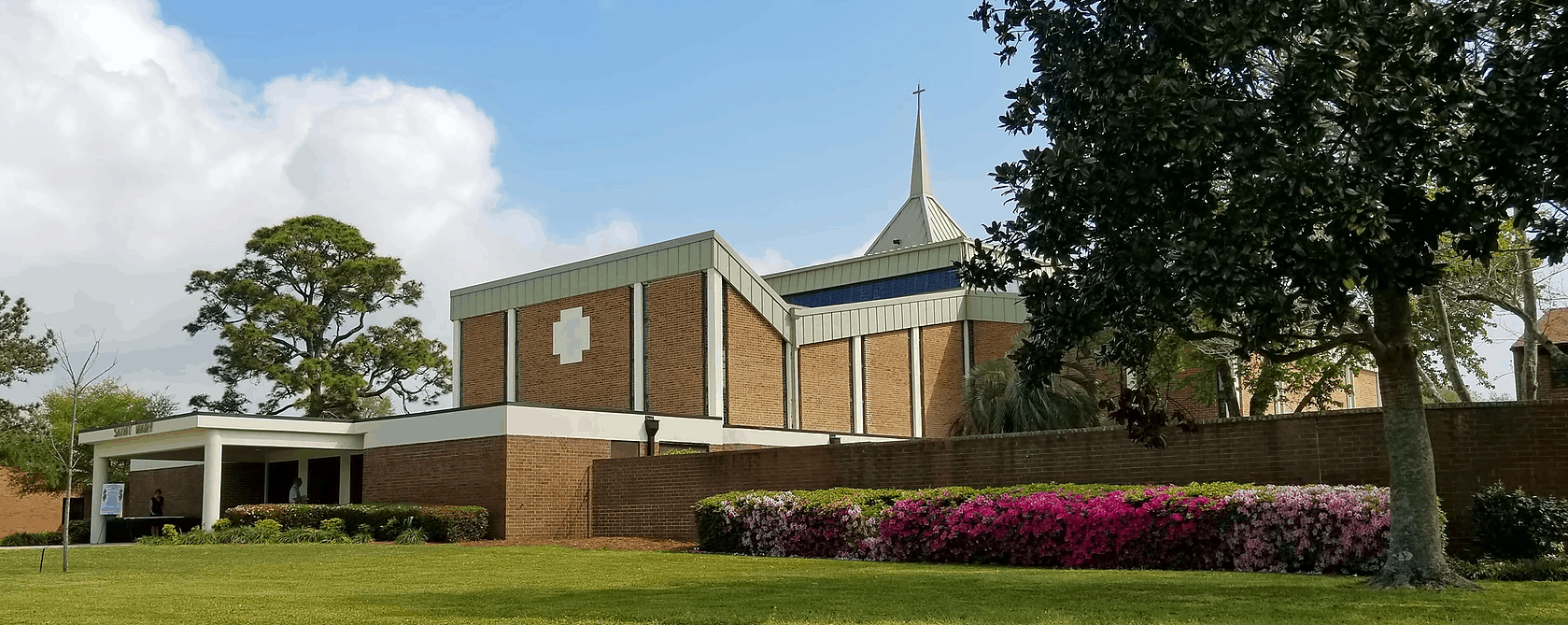Seriously God? Week 1: The Seeing Leading the Blind
As we prepare for Lent, which begins this Wednesday, we begin a new message series called Seriously, God?: Making Sense of Life Not Making Sense.
Through this series, we’ll examine these thorny issues which hinder our faith and trust in God. We will see we are not the first ones to struggle with disappointment in God. The heroes of the Bible felt the same frustrations with God. They experienced dissonance between a good God and their life’s circumstances.
For those of you who are back in church for the first time in a long time, you may have stayed away precisely because of some of the issues we will address in this series.
You grew up in church. You heard about the rules. Maybe it seemed like God only said no, or you can’t do that. God seemed like the great cosmic cop in the sky. As an adult, perhaps you thought: “Who needs that?” Consequently, the first chance you had, you got as far away from church and God as you could.
Maybe you didn’t grow up in church. All you’ve heard is what the church is against, so you assume God is against everything.
Maybe you gave up on God because he let you down. You needed help. You prayed, asked for help. It seemed like God didn’t help.
Maybe you feel disappointed with God because you look at leaders, political leaders, church leaders, or your homeowners’ association. You think: “Seriously, God? You allow those people to be in charge?”
You may also ask: can there be a good God with all the suffering in the world? You look at poverty, illness, homelessness, injustice and ask: “How is it possible to believe in a God who is both all-good and all powerful?”
Lastly, there is the issue of death, especially people who die too young. How can God allow that?
If one, or a few of these issues, has driven you away from church, or faith, you chose the perfect weekend and the perfect series to join us.
These are issues with how we SEE God, issues which require thought and reflection. The next six weeks, we will address these issues. We won’t be able to answer every question, but we will see the Bible is not afraid to raise those challenging issues. This series will help you feel good about faith in God, while living in our chaotic, seemingly hopeless world.
Here are three foundational principles to keep in mind as we go through this series.
First,
It makes sense that God doesn’t always make sense.
If God is all-wise, all-knowing, and we are limited in our wisdom and knowledge, it makes sense we don’t always understand God’s ways of doing things. He understands all the intricacies of how life works in a way we can never FULLY comprehend.
All time and space is present to God. We see life through a rather narrow window of time and space. He sees all of history, how it is laid out. We benefit from seeing what has come before us by understanding history, but we don’t know what is coming in 10 years, 50 years, or 100 years. God does. God sees all of time and history.
A God who thinks as you think, who always makes sense to you, would not be God. He would merely be a reflection of you. It is not a surprise God does not always make sense to us. It makes sense that we need to deal with the disparity between what WE would do if WE were God and how God chooses to manage and run the world.
Second,
When God does not make sense, we can get to know him better.
While we cannot come to understand EVERYTHING about God, we CAN grow to know his ways, and thoughts, for he has revealed them to us.
Catholicism is not a religion. It’s a revelation. This revelation makes Catholicism true and profound. God first revealed himself to the Jewish people. Over centuries he instructed them about himself. He taught them, through the law and the prophets, what he valued, how he wanted them to act.
God then revealed himself by sending his Son into the world. Jesus came to earth to show us God, by being love-in-action. He cleared up the misconception that God was always angry at us by presenting him as a loving Father in the parable of the Prodigal Son. He cleared up the misconception that God only loves certain types of people by telling the parable of the Good Samaritan. He cleared up the misconception that God demands us to be perfect by dying on the cross. We would not know any of this if God didn’t reveal it to us.
Today we heard Jesus ask: “Can a blind person guide a blind person? Won’t both fall into the pit?” He is saying if you follow someone, who does not know the truth about God, you will fall into a pit, meaning, you will fall into misconceptions about God.
Somebody influences your views about God, or whether God exists. Jesus invites us to follow HIM and learn from HIM. This does not mean we check our brains at the door.
God gives us beautiful minds to reflect on his word and teaching. He invites us to ponder, think, and reflect on JESUS’ revelation, so we will better come to know GOD’s thoughts and GOD’s ways.
You may have been turned off by Christianity because, amid a senseless situation, a Christian threw up their hands saying, “Well, God works in mysterious ways.” While true, that does not mean we should give up trying to understand God. The word theology means study of God. We study God through our faith seeking understanding. Theology then, is faith seeking understanding, reflecting on what God has revealed to us, through the Bible and the Church. If you have faith in God, and seek to understand him, you are a type of theologian.
When we encounter an issue which doesn’t make sense, we have an incredible opportunity to lean into our lack of understanding and work to understand more of God’s revelation. Try not to get frustrated, for our lack of understanding is our invitation to better know the mind and heart of God.
Through the Bible, God reveals his heart. Through prayer, the sacraments, and a loving relationship with the Lord, we will better understand God’s heart.
Third,
There’s a difference between God not making sense and life not making sense.
Sometimes life doesn’t make sense. Remember, not everything happening in our life, or on this planet, is God’s will.
Every time we pray the “Lord’s Prayer,” we say, “thy will be done on earth as it is in heaven.” We pray for God’s will to be done because God’s will isn’t always done. This world is not currently as God wants it, or wills it. He is working on it, but there are forces of evil opposing God.
Nature itself has been broken and acts in ways causing destruction and chaos, not aligned with God’s will. Furthermore, some PEOPLE do bad things because THEY chose evil.
God can make all things work together. As Christians, we believe the power of God overcomes evil. What others intend for evil, God can use for good. We believe this will happen. But not everything happening on earth is what God wants. God eventually will have his way, but there are specific acts which break God’s heart in the meantime.
Perhaps some well-meaning person has led you to a negative view of God. You have seen something horrible happen; this person says, “It’s God’s will.” “You have to accept it.” You think: “If that’s God’s will, and what God wants, then I want nothing to do with God.” I don’t blame you.
God doesn’t want poverty, child abuse, drug addiction, homelessness, abuse of power, and on and on. He does not want it; however, God allows it.
You see there is God’s PREFERRED will and God’s PERMISSIVE will. God’s preferred will is what God wants to happen, how he wants people to act. Yet, God gives us the freedom to act contrary to what he wants. He permits us to have free will because only with free will can we truly learn to love.
Those are three principles to keep in mind throughout our Lenten series: One, it makes sense that God doesn’t always make sense. Two, Catholicism is a revelation — God reveals himself to us. Three, there’s a difference between God not making sense and life not making sense.
I’d like you to make one of two commitments. If you are new, or if it’s your first time in church in a long time, simply commit to come back. Join us for this series here at Saint Mary.
For those of you who attend regularly, you know someone who needs to hear this series. Invite them to join us.
When God doesn’t make sense, we seek to understand him. As we seek to understand him, we will find him and grow in our relationship with him.


